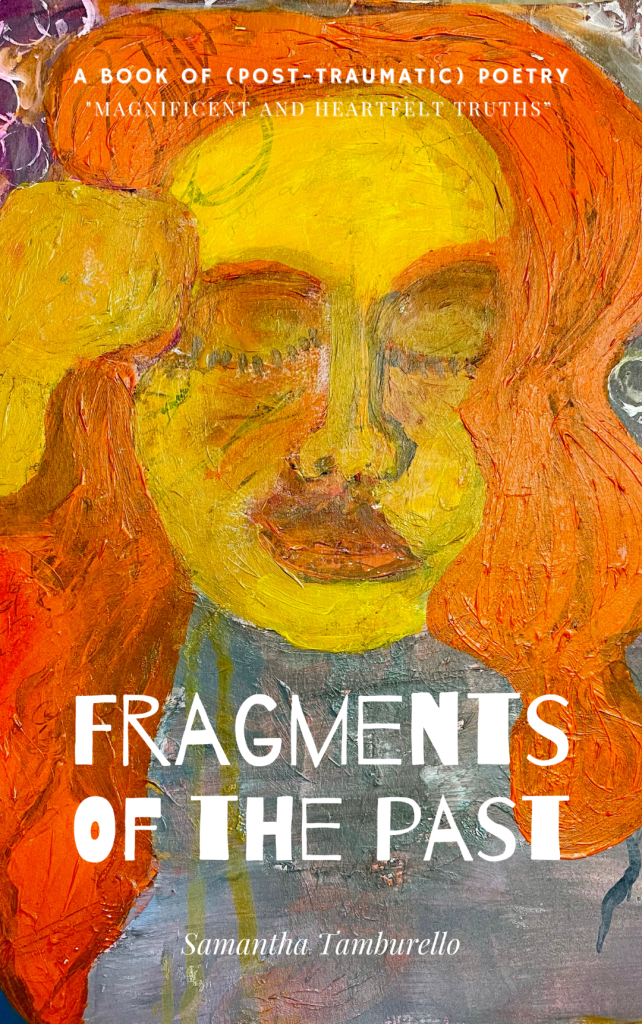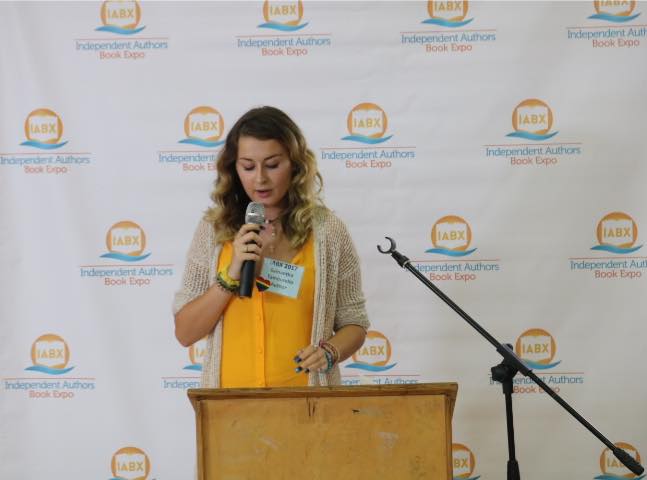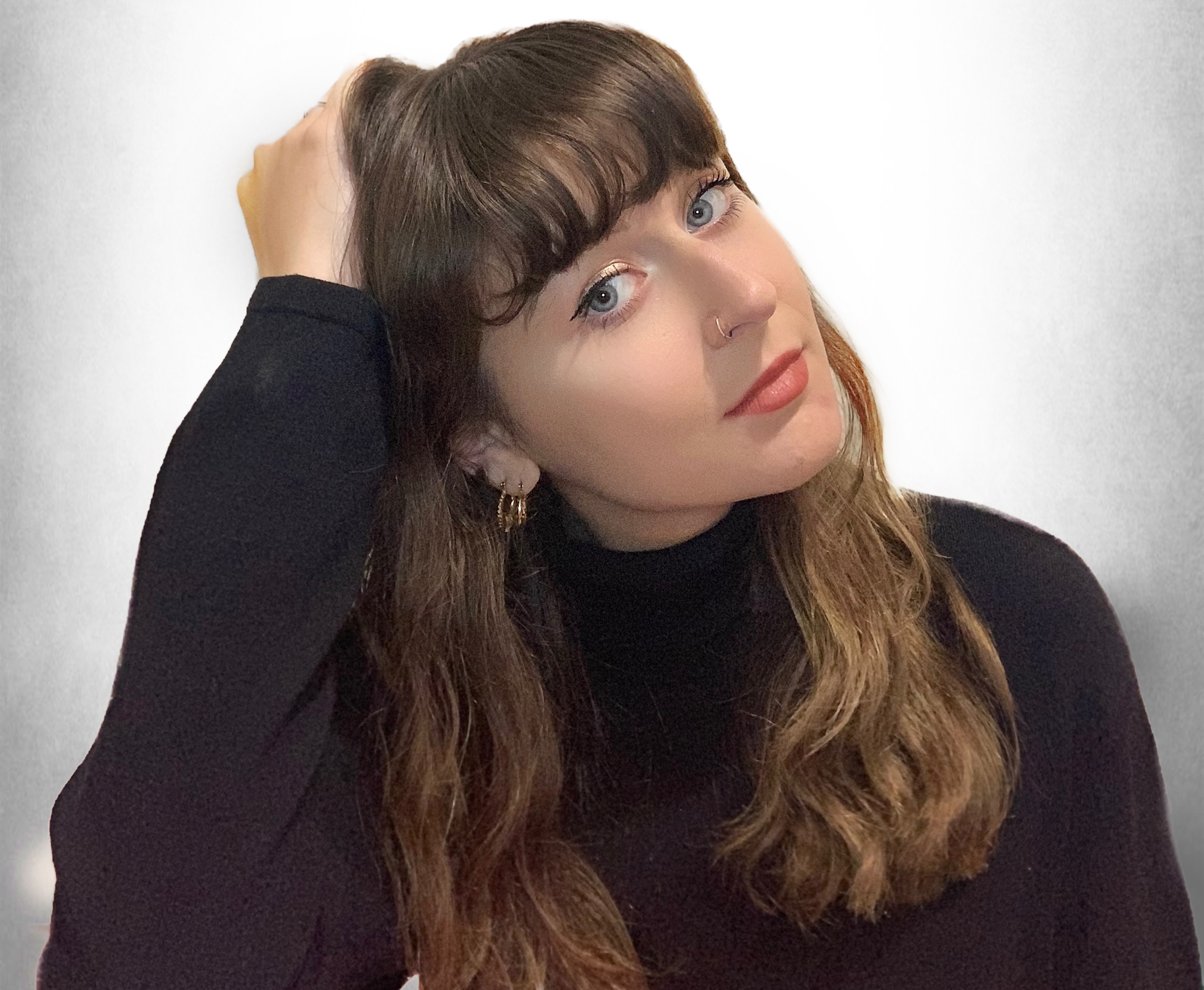“From Trauma Came Beauty”
Samantha Tamburello, the spunky 25 year old author from New York City sits in her bright yellow dress as she discusses the dark subjects of her writing. She first published a work of poetry in 2017. “It was really my toe in the water of publishing. I didn’t know what I was doing but I knew I had this incredible urge to share my poems with anyone and everyone who would listen, [and] relate.”
In my sit down interview with Samantha, I wanted to know a little of the ‘why’ behind the words. Our interview is transcribed below;

Q: Tell me about this new book.
A: “Fragments of the Past: Post-Traumatic Poetry is an exploration of the human psyche following trauma, but in poetic form. During the pandemic and in quarantine is truly the first time I sat down and processed my past and with it, came so so much writing. Then, this book was born.”
Q: How long did the writing process take?
A: “I have hundreds of poems written in the notes of my phone, actually. They are endless but the content of this book started right around the time Covid hit, early 2020. That’s when my emotional state became so fragile. These poems are the most raw and authentic to who I am and how I feel. I was still writing in the month it was published, November 2021. I just had to cut it a little short as it was taking a toll on me.”
Q: Tell me more about that.
A: “Processing trauma is a funny thing. I always thought dealing with things you suppressed would be healthy and make you feel good but it felt like the wrong thing to do. It made me feel worse. I cried a lot. I isolated myself for many months. But I found that my writing was helping me more long-term to understand myself and my life better. With that and my therapist, I felt more validated in my daily struggles and mental health journey. I knew the ‘why’ and now I could just move forward.”

Q: Do you have other published work that you feel is less authentic to who you are now?
A: “The authenticity has always been there. My previously published poetry books are still me, just a different stage of me. A me who refused to accept the extent of my trauma.”
Q: If you feel comfortable, can you open up about some of the subjects in your poetry?
A: “Yeah, it’s just full transparency of my mental health struggles following trauma… so that is a lot of things, honestly. It’s losing people close to me, some through death others through other means. It’s being the child of a mentally ill parent who puts you in scary situations, it’s the aftermath of inappropriate interactions that took place from a grown man when I was a child. It’s battling with my sexuality and coming out.”
Q: I’m sorry that you’ve dealt with this, but that is something so courageous to share your story.
A: “Thank you. I don’t like to go into detail about things, I’ve never found it necessary. But I think the writing I’ve done has been specific yet vague enough that anyone in the ballpark of experiencing what I have seem to connect very well. This is what I always wanted and it has warmed my heart to hear that people are connecting. That was my only wish, truly. I can’t tell you how much I needed a book like this when I was actively going through these things. I hope my writing continues to connect with PTSD survivors to help heal but also people still in the crosshairs who just need to feel seen. I just want them to know I see them and it’s going to be okay.”
Q: Has the reader response been positive?
A: “Yes and no. I have received overwhelming support and people saying they can relate. However, with that people have dealt with the same pain I was when I started writing. A trigger warning isn’t always enough. If you are a traumatized person, you need to be prepared to face your past or else this book can be a lot. I didn’t want anyone to read this and feel sad so I did try and end it on a positive note with all of the poems I wrote when I started moving forward.”
Q: Have you always wanted to be a writer?
A: “Absolutely. Everyone is a writer when you think about it. We all have the verbiage and the ongoing internal monologue. I think everyone should be penning these things down. I don’t think people realize the value in their words or how helpful they can be to share. I’m no different than anyone else. Everyone has a story, I just made the choice to make it poetry.”
Q: Where did the name come to you, ‘Fragments of the Past’?
A: “It actually came from one of my poems and sort of covers everything. It describes how reconciling your trauma can be remembering it piece by piece and seeing how it all connects. They’re just fragments that make up a good part of who I am.”
Q: Would you read one of your poems for me?
A: “Yes! I have one here that I wrote in a depressive state:
it’s the shade being down,
collection of socks bedside
beside the empty water bottles.
it’s the journal pages ripped
crumpled to the floor-
an attempt at fake positivity
writing poems about love
despite a self-hatred that runs deep
through my veins pumping like
gasoline, i’m on empty
but though my stomach cries out,
my body’s last attempts,
i cannot find it within me.
it’s my body and my mind
not seeming to align.
my body says ‘save me’
my mind says ‘what for’?”
Q: Tell me a little about why you chose that one? What drew you to it?
A: “I think depression is just something a lot of people have experienced unfortunately and it is one of those poems from the book that anyone could read and feel that pit in their stomach. There are pieces within the book that everyone can relate to because life just isn’t all sweetness and roses. We hurt as humans and I just captured a very thorough depiction of that.”
Q: Thorough indeed, it’s over 100 pages of poetry but I know you say the ending is more hopeful?
A: “Exactly, I tried to end it on a positive note with the poems I wrote in a positive headspace. The first section of the book is called ‘processing’ and ‘healing’ is the name of the second section.”
Q: Can you read a poem from ‘healing’?
A: “healing is contradiction.
it is faking everything you need to become.
it is reading a book
wanting to skip chapters
and not.
it is bitter in taste
but sweet in composition.
it is writing poetry
through hysterical tears
knowing each painstaking moment
is making an easier tomorrow.
it is making amends,
it is forgiving myself
for forgiving the people who hurt me
for forgiving the people who hurt them
who are forgiving the people who hurt them.
if my journey is anything at all,
it is mine.
it is regaining control.
it is closing the book
and writing a new one.”
Q: What’s to come for you?
A: “More therapy. Just kidding, well, I’m not kidding, but I definitely will continue writing. If it feels worth sharing, I’ll share. If it’s cumbersome, I’ll publish. I don’t really have a blueprint, I’m just trying to be happy and make art. If there are people who are interested, I’m happy to share but in the end, I’m doing what I love so I’m fine with how things are going.”
Fragments of the Past: Post-Traumatic Poetry is available on Amazon as well as other works by Samantha Tamburello. She also shares new writing frequently via social media apps such as Instagram.




